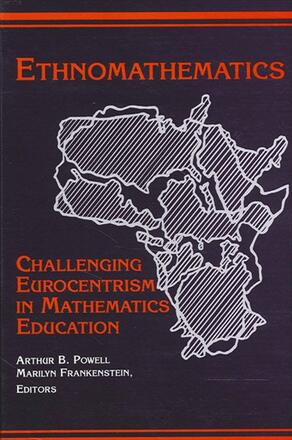
Ethnomathematics
Challenging Eurocentrism in Mathematics Education
Alternative formats available from:
Presents the emerging field of ethnomathematics from a critical perspective, challenging particular ways in which Eurocentrism permeates mathematics education and mathematics in general.
Description
This collection brings together classic, previously published articles and new research to present the emerging field of ethnomathematics from a critical perspective, challenging particular ways in which Eurocentrism permeates mathematics education. The contributors identify several of the field's broad themes—reconsidering what counts as mathematical knowledge, considering interactions between culture and mathematical knowledge, and uncovering hidden and distorted histories of mathematical knowledge. The book offers a diversity of ethnomathematics perspectives that develop both theoretical and practical issues from various disciplines including mathematics, mathematics education, history, anthropology, cognitive psychology, feminist studies, and African studies written by authors from Brazil, England, Australia, Mozambique, Palestine, Belgium, and the United States.
Arthur B. Powell is Associate Professor in the Academic Foundations Department at Rutgers University–Newark. He has coauthored Math: A Rich Heritage, translated Sona Geometry: Reflections on the Tradition of Sand Drawings in Africa South of the Equator, and cotranslated Sipatsi: Technology, Art and Geometry in Inhambane. Marilyn Frankenstein is Professor at the Center for Applied Language and Mathematics, College of Public and Community Service at the University of Massachusetts, Boston. She has also written Basic Algebra and Relearning Mathematics: A Different Third R-Radical Maths. Together, they are co-founders of the Criticalmathematics Educators Group and members of the Radical Teacher Editorial Collective.
Reviews
"This volume brings focus to the issues of access and equity within mathematics and identifies ways to assist teachers in providing quality mathematics to traditionally underserved and underrepresented students. Culturally responsive pedagogy is an area that is sorely lacking given the fact that our nation's classrooms are becoming increasingly diverse. We cannot have enough work in this area. Such material should be required for teacher preparation as well as professional development. " — Sharon Nelson-Barber, Far West Laboratory for Education Research and Development
"This is a collection of some of the most important papers in ethnomathematics. The authors provide insightful and historical analyses of the development and use of mathematical concepts. Traditionally, this perspective is absent from discussions in mathematics education, yet this book makes a unique contribution to the literature. " — William F. Tate, University of Wisconsin–Madison